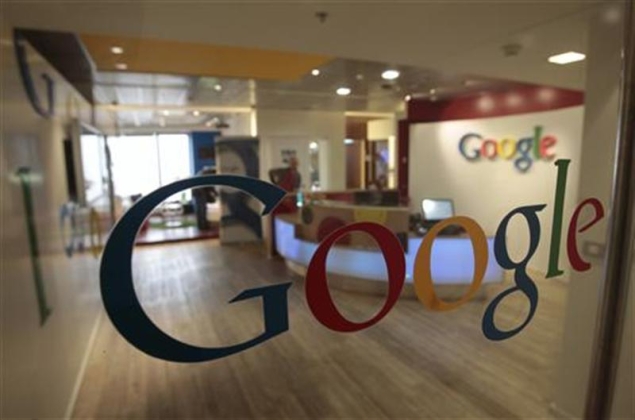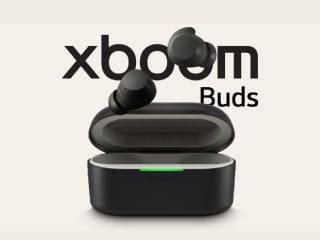- Home
- Internet
- Internet News
- Google testing Shopping Express same day delivery service to rival Amazon Prime
Google testing Shopping Express same-day delivery service to rival Amazon Prime

Google Shopping Express helps local retail stores sell products online and have the items delivered to shoppers the same day, according to a person familiar with the test.
Google arranges for third parties, such as couriers, to pick the products up from local stores and deliver the items to shoppers. Neither the stores nor Google handle the deliveries, the person explained on condition of anonymity because the service is still in the early development stage.
Tom Fallows, a Google product management director with over a decade of e-commerce experience, is running Google Shopping Express. The test is focused on the San Francisco Bay Area and has been going for at least a month, the person added.
Google has not yet decided how to charge for the service. It is considering an annual subscription, similar to Amazon, which charges $79 a year for free two-day delivery of many items purchased on Amazon.com. However, Google may also charge a small fee each time a shopper orders through the service, the person said.
Google Shopping Express is the latest sign that the company is expanding from its online search roots into e-commerce. It also suggests that Google may be building an online marketplace that connects merchants and consumers, a business model that has made Amazon and eBay Inc successful in the United States.
"Google needs to become a marketplace," said Scot Wingo, chief executive of ChannelAdvisor, which helps merchants sell more online. "This is another step." EBay is an investor in ChannelAdvisor.
Amazon's marketplace business, which lets other merchants sell through its website, has grown rapidly in recent years and has been a big driver of Amazon's revenue and profit growth.
This success has encouraged more shoppers to search for products on Amazon.com, rather than going to Google - a potential threat to Google's search dominance online.
In the past, consumers would search for an item on Google.com, an Amazon sponsored link would pop up, the shopper would click through, Google would get paid for the ad and Amazon got the sale.
"Everyone was happy. At least they used to be," said Tom Allason, founder of Shutl, a startup that provides same-day delivery for retailers' online orders. "Today Google needs a new play because increasingly consumers are cutting out Google and going direct to Amazon for their product search."
Last year, Google changed its free product search offering to a paid service called Product Listing Ads, a move aimed at generating more revenue and profit from e-commerce.
In February, Google acquired Channel Intelligence, a $125 million deal that brought the search giant lots of data on e-commerce transactions. Longer-term, that could help Google build a product catalog, a crucial ingredient for an online marketplace that would compete with Amazon and eBay, according to Wingo.
"We view Google Shopping Express as another step in the evolution of Google Shopping and potential move to a full-blown marketplace," Shawn Milne, an analyst at Janney Montgomery Scott, wrote in a note to investors on Tuesday.
Amazon has an advantage because it already has a network of large distribution warehouses, known as fulfillment centers, to deliver goods sold through its online marketplace, according to Wingo.
Google is likely taking a different approach, building a network of loosely affiliated local retail stores that, in effect, act like small fulfillment centers, Wingo explained.
eBay took a similar approach when it acquired Milo in late 2010. Milo let shoppers search for products available to buy in retail stores nearby.
The business formed the foundation of eBay's Local Shopping business and is a crucial part of eBay Now, a same-day delivery service that the company began testing in San Francisco and New York last year.
© Thomson Reuters 2013
For the latest tech news and reviews, follow Gadgets 360 on X, Facebook, WhatsApp, Threads and Google News. For the latest videos on gadgets and tech, subscribe to our YouTube channel. If you want to know everything about top influencers, follow our in-house Who'sThat360 on Instagram and YouTube.
Related Stories
- Samsung Galaxy Unpacked 2025
- ChatGPT
- Redmi Note 14 Pro+
- iPhone 16
- Apple Vision Pro
- Oneplus 12
- OnePlus Nord CE 3 Lite 5G
- iPhone 13
- Xiaomi 14 Pro
- Oppo Find N3
- Tecno Spark Go (2023)
- Realme V30
- Best Phones Under 25000
- Samsung Galaxy S24 Series
- Cryptocurrency
- iQoo 12
- Samsung Galaxy S24 Ultra
- Giottus
- Samsung Galaxy Z Flip 5
- Apple 'Scary Fast'
- Housefull 5
- GoPro Hero 12 Black Review
- Invincible Season 2
- JioGlass
- HD Ready TV
- Laptop Under 50000
- Smartwatch Under 10000
- Latest Mobile Phones
- Compare Phones
- Honor GT
- Acer Super ZX Pro
- Acer Super ZX
- Motorola Edge 60 Stylus
- Samsung Galaxy XCover 7 Pro
- Moto G Stylus (2025)
- Oppo Find X8s+
- Oppo Find X8s
- HP OmniBook Ultra 14
- Asus Vivobook 16 (AMD, 2025)
- Samsung Galaxy Tab Active 5 Pro
- Oppo Pad 4 Pro
- Oppo Watch X2 Mini
- Garmin Instinct 3 Solar
- Xiaomi X Pro QLED 2025 (43-Inch)
- Xiaomi X Pro QLED 2025 (55-Inch)
- Nintendo Switch 2
- Sony PlayStation 5 Pro
- Whirlpool 1.5 Ton 3 Star Inverter Split AC (SAI18K38DC0)
- Whirlpool 1.5 Ton 5 Star Inverter Split AC (SAI17B54SED0)

















